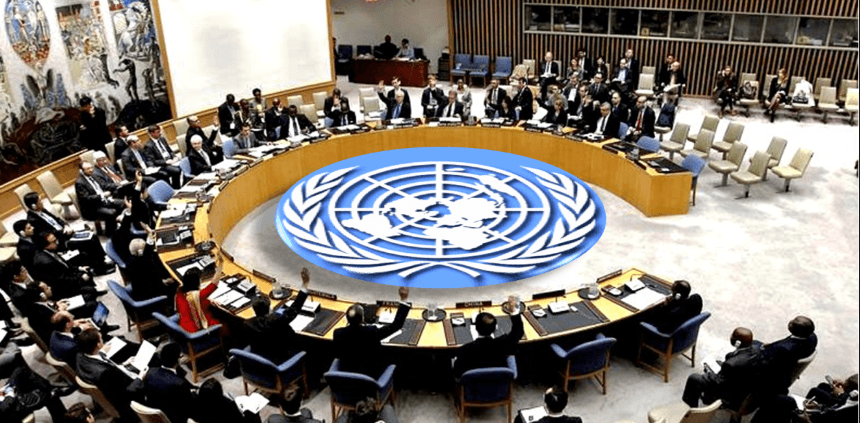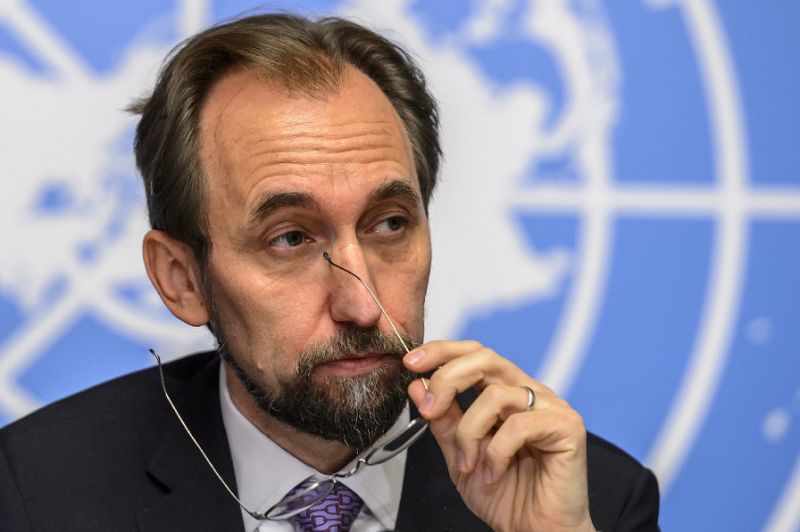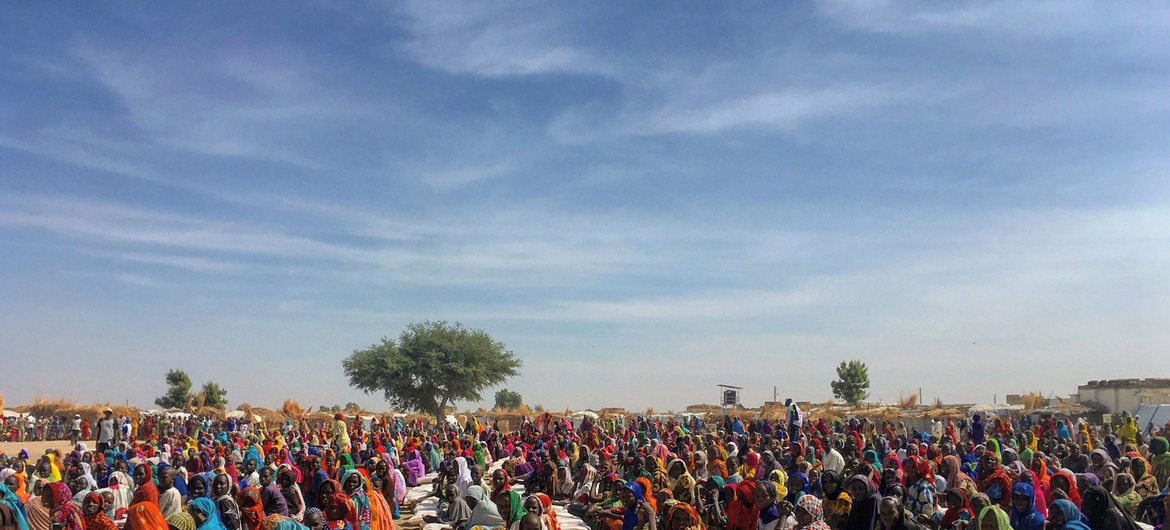The United Nations (UN) has said the Nigerian government paid ‘large ransom’ to Boko Haram insurgents to free scores of female students kidnapped from their school in Dapchi, Yobe State, earlier this year.
This is Contrary to the claim by the government that the girls were freed without ransom.
Recall that over 100 girls were kidnapped from the Dapchi school by a Boko Haram faction in February this year with about 105 of them later released by the terrorists. One of them, Leah Sharibu, who reportedly refused to denounce her Christian faith, is still with the abductors.
Following the release of the girls, about a month after they were kidnapped, Mohammed told journalists that it was not true ransom was paid for their release.
‘’It is not true that we paid ransom for the release of the Dapchi girls, neither was there a prisoner swap to secure their release,” Mohammed told journalists in Maiduguri.
“What happened was that the abduction itself was a breach of the ceasefire talks between the insurgents and the government; hence it became a moral burden on the abductors. Any report that we paid ransom or engaged in prisoner swap is false.”
A UN report has now shown Mohammed’s claim to be false.
The report recently submitted to the UN Security Council on Boko Haram and related terrorist organisations, said such ransom and the predominance of cash economy was providing oxygen for the insurgency around the Lake Chad region.
The UN report is titled “22nd Report of the Analytical Support and Sanctions Monitoring Team”, related to Resolution 2368 (2017) regarding “Islamic State in Iraq and the Levant – ISIL – (Da’esh), Al-Qaida and associated individuals and entities.”
“In Nigeria, 111 schoolgirls from the town of Dapchi were kidnapped on 18 February 2018 and released by ISWAP on 21 March 2018 in exchange for a large ransom payment,” the report stated.
The UN report negating the Nigerian government’s stance reflects the manner of propaganda the Nigerian government and its military have been using to fight the war against Boko Haram.
The government’s stance appears to be that suppressing information, or as in this case lying about it, would reduce the efficacy of the insurgents and thus limit their ability to carry out their terrorist acts.
The Dapchi girl’s ransom would not be the first by the Nigerian government to free victims held by Boko Haram. Huge ransom was also paid by the Buhari administration to free many of released Chibok girls kidnapped in 2014, senators including the leader of ruling party in the Senate, Ahmed Lawan, said. Although the move is largely welcomed by many Nigerians as it ensures freedom for the victims, experts fear it has helped fuel the insurgency by ensuring the Boko Haram has access to funds to buy more weapons and sustain themselves; a stance shared in the UN report.
Apart from ransom, the UN also listed other ways the Boko Haram group is being funded.
“…extortion, charitable donations, smuggling, remittances and kidnapping as parts of ways Boko Haram is funded,” the report stated as quoted by the News Agency of Nigeria.
The report also stated how some “doctrinally based non-governmental organisations” were funding Boko Haram and other terror groups.”
“The number of doctrinally based non-governmental organisations sending funds to local terrorist groups was growing, and Member States were concerned that radicalisation was increasing the threat level in the Sahel.
“Meanwhile, Boko Haram (QDe.138) and the Islamic State West Africa Province (ISWAP) have had a similar impact in their areas of control, including the Lake Chad basin.
“The predominance in the region of the cash economy, without controls, is conducive to terrorist groups funded by extortion, charitable donations, smuggling, remittances and kidnapping.”
According to NAN, “the report was signed by Edmund Fitton-Brown, Coordinator, Analytical Support and Sanctions Monitoring Team, who said the report was “comprehensive and independent”, and Kairat Umarov, Chair, Security Council Committee.
The UN Security Council committee on al Qaeda sanctions blacklisted and imposed sanctions on the Boko Haram in 2014 after the insurgents kidnapped more than 200 Chibok schoolgirls.
The designation, which came into effect after no objections were raised by the Security Council’s 15 members, subjected Boko Haram to UN sanctions, including an arms embargo, asset freeze and travel ban.
The UN Security Council had last week said it remained concerned over the security and humanitarian situation caused by the Boko Haram terrorists and other armed groups in Nigeria, Cameroon and Chad.
In a presidential statement, the 15-member body regretted that Central African countries were beset by terrorist activity, instability and the effects of climate change, and asked Secretary-General Antonio Guterres to review the work of the UN Regional Office for Central Africa (UNOCA), and recommend areas for improvement.
The presidential statement read: “The Security Council strongly condemns all terrorist attacks carried out in the region, including those perpetrated by Boko Haram and the Islamic State in Iraq and the Levant (ISIL, also known as Daesh).
“These attacks have caused large-scale and devastating losses, have had a devastating humanitarian impact including through the displacement of a large number of civilians in Nigeria, Cameroon and Chad, and represent a threat to the stability and peace of West and Central Africa.
“The Council notes with particular concern the continuing use by Boko Haram of women and girls as suicide bombers, which has created an atmosphere of suspicion towards them and made them targets of harassment and stigmatisation in affected communities, and of arbitrary arrests by security forces.
“The Council emphasises the need for affected States to counter-terrorism in all its forms and manifestations, including by addressing the conditions conducive to the spread of terrorism, in accordance with obligations under international law, in particular international human rights law, international refugee law and international humanitarian law”.
The Security Council welcomed the support provided by UNOCA and the UN Office for West Africa and Sahel (UNOWAS) for the development of a joint regional strategy to address the root causes of the Lake Chad Basin crisis through regular contact with regional leaders.
The Council encouraged partners to increase security assistance to Lake Chad Basin Commission countries, and humanitarian and development support across the region for those affected by Boko Haram activities.
“The Security Council remains deeply concerned at the grave security situation and related violations and abuses of human rights in parts of Central Africa, in particular, the continuing terrorist activities of Boko Haram and other terrorist groups in the Lake Chad Basin,” it said.
“The Security Council expresses its ongoing concern at continued tensions linked to disputed electoral processes, social and economic difficulties, and conflicts between farmers and herders,” the statement added.



